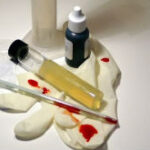By Betty Layne DesPortes, Chair of the Forensic Sciences Foundation, Inc

Additionally, while forensic science is an extremely powerful tool in the search for the truth, it is only part of the investigation of a case. Forensic scientists do not serve as “super cops” who single-handedly solve a case and achieve justice in the span of an hour. Forensic scientists are specially trained scientists who test, analyze, evaluate, and interpret physical evidence, and who present the results of their work in court through expert testimony.
Although some types – or disciplines – of forensic science have been historically associated with law enforcement, many forensic science career opportunities are now in the civilian sector and do not require a law enforcement background. Consistent with recent recommendations from the National Academy of Science, the trend has been to establish the independence of forensic science services from law enforcement services. Many law enforcement personnel, however, become interested in the science used in the investigation of crime and transition to forensic science careers after additional education and training. The field of forensic science offers many opportunities for law enforcement personnel to expand their career options while continuing their contributions to the justice system.The diversity in forensic science disciplines is illustrated by the following membership sections of the American Academy of Forensic Sciences, the largest forensic science professional organization in the world:
- Criminalistics
- Digital & Multimedia Sciences
- Engineering Sciences
- General
- Jurisprudence
- Odontology
- Pathology/Biology
- Physical Anthropology
- Psychiatry & Behavioral Science
- Questioned Documents
- Toxicology
Criminalistics encompasses the most commonly recognized forensic science laboratory techniques, such as the analysis of trace materials, fingerprinting, and other pattern comparison techniques.
Digital & Multimedia Sciences is a rapidly expanding field that deals with the preservation, recovery, analysis, and interpretation of evidence from digital devices, such as computers and smartphones.
Engineering Sciences broadly covers motor vehicle and other accident reconstruction, product design evaluation, and other structural review issues.
The General Section encompasses newly emerging forensic scientific specialties and scientists working in established areas of forensic science not fitting the more narrow definitions of the other sections, and includes a wide range of specialties from facial reconstruction to forensic nursing.
The Jurisprudence Section recognizes the overlap in forensic science between science and the law. Judges, prosecutors, defense attorneys, and civil attorneys often routinely encounter forensic science issues in their cases and benefit from additional education and training in forensic science to effectively present forensic science evidence in court. Legal academicians may also specialize in teaching scientific evidence or researching issues related to forensic science.
Odontology involves the interpretation of dental evidence to address questions of identity, causation, and reconstruction of events.
Pathology/Biology concerns determinations of the cause and manner of death and the examination of human biological specimens related to the death investigation.
Physical Anthropology covers the application of the techniques of osteology (the study of bones) and skeletal identification to primarily answer questions of identity and mechanism of trauma.
The Psychiatry & Behavioral Science Section is home to forensic psychologists and psychiatrists who provide evaluation and testimony concerning a range of mental health issues including competency, insanity, and diminished responsibility. They also provide important evidence in civil cases where the mental health of the parties or affected individuals is relevant, such as child custody cases and disability compensation proceedings.
Questioned Documents involves the examination of documents and handwriting to determine genuineness and may include handwriting comparison analysis, and restoration of faded or chemically erased writings.
Toxicology includes the detection and quantification of poisons in human biological specimens, drug and alcohol screening, and toxin detection in consumer products.
Careers in forensic science generally require significant education in the physical sciences (such as chemistry, biology, or physics) and extensive supervised training. Many employers, particularly laboratory facilities, require at least a bachelor’s degree for entry level positions and advanced degrees for supervisory positions. Some disciplines in forensic science require advanced or specialized licenses, such as medical licenses for the practice of forensic pathology.
Because forensic science covers such a broad range of scientific fields, the career possibilities are extensive and provide the opportunity to specialize in diverse areas from entomology (the study of insects) to large-scale forensic disaster investigation. Whether you prefer the biological (e.g., DNA analysis), the physical (e.g., accident reconstruction), the chemical (e.g., drug analysis), or the behavioral (e.g., psychiatry), forensic science offers a place to pursue your interests.
Betty Layne DesPortes is the Chair of the Forensic Sciences Foundation, Inc. (FSF), a nonprofit organization studying the application of science to the resolution of social and legal issues. Founded in 1969, the FSF became affiliated with the American Academy of Forensic Sciences, a professional membership organization of forensic scientists. The FSF is the educational, scientific, and research arm of the Academy. The FSF works to develop and conduct educational programs, to improve the forensic sciences, to promote public education concerning all forensic science disciplines, and to support research in fields relating to the forensic sciences.
